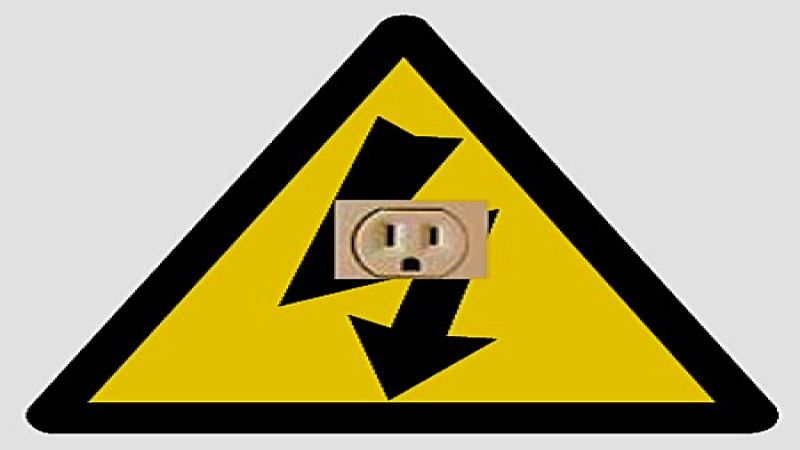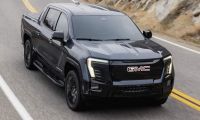What was once free is about to cost a lot of money with the public charge model about to turn on the fees. While, it is difficult for any business to stay afloat during a recession, charging expensive fees certainly seems like a recipe for disaster.
From Free Charging To Expensive. Some of you have noticed that the free public system is slowly going away and is replaced with hefty prices. Most electric cars, the Nissan Leaf and Mitsubishi i MiEV have a 3.3kW on-board charger. If you have the newer Ford Focus electric or Coda’s EV, the charger jumps to 6.6. If you happen to have a Tesla Model S, then your charger handles 10 kW, although to be fair, J1772 won't allow 10 kW since most public stations are capped at 240 volts with 30 amps, which gives you 7.2 kw. What does this mean? The higher the charger rate is, the faster you can charge. And therein lies the rub, public charge stations want to charge you by the hour, not how much electricity you are consuming.
Trickle To Gulp Charging. To put things into perspective, a Nissan Leaf or Mitsubishi i MiEV owner would have to pay $2 an hour using a slow 3.3 kW charger. However a Ford Focus Electric or Coda driver would spend the same amount a twice as fast 6.6 charger. That means the Ford and Coda would charge twice as much electricity for the same $2 an hour i MiEV or Leaf. $2 an hour for the Tesla driver with its 10 kW charger becomes very advantageous.
To give you an even clearer idea, a 3.3 kW charger would make public charging cost you 60 cents at this rate. A 6.6 kW charger brings it down to 30 cents, maybe 25 for the Tesla Model S. Obviously, residential electric rates are cheaper, varying from 3 cents to 25 per kWh. In other words, a Leaf or i MiEV owner would pay 20 times more charging in a public place than at home, and 10 times as much for a Focus electric or Coda.
In terms of gasoline, the point becomes even more ridiculous. Full price rate for a 3.3 kW charger at $2 an hour is the equivalent of a 28-mpg gasoline car. Mark Williams, an air pollution specialist with the California Air Resources Board CARB calculates on GreenCarReport that the eventual $10,000 replacement of a battery pack at today’s price after 100,000 miles makes your per-mile cost 10 cents. This effectively means Leaf and i MiEV owners would pay $3.20 an hour for the 12 miles, the equivalent of a 15-mpg gasoline vehicle. Well, you get the point.
And this begs to question what are companies thinking of, or not when they determine $2 an hour is a good price to make electric car drivers pay? These people bought electric cars in order to cut down their budget. It’s perplexing when businesses expect EV drivers to come shopping and pay 20 times more than charging at home. If the current recession is to teach businesses a lesson, it’s that consumers don’t spend more than they have to. Both Nissan and Mitsubishi said the new versions would have 6.6 kWh systems.
In the meantime, we can only hope the public charging of electric car model will come back to reality.
Set as google preferred source











Comments
As a Nissan LEAF driver, I
Permalink
As a Nissan LEAF driver, I would never regularly use a Level 2 (240v) charger at $2/hr. I understand that the suppliers need to show a profit, but I'm sure that the service providers know that a fee of $2/hr is not a good business plan. They may not have a choice for some reason.
CHAdeMO DC quick charging at $2 for an hour is a great value. 20 minutes and the car is at 80%.
Hi Brain, exactly, it is a
Permalink
In reply to As a Nissan LEAF driver, I by Brian Keez (not verified)
Hi Brain, exactly, it is a not well thought business model and not too many are going to fall for it. Also, I think it's just the beginning and businesses have no idea how to deal with this. Once they caluclate and see the difference in on-board chargers, then they will readjust their plans. Another problem could be due to how much their cabling can safely deliver. At least it opens up the conversation.
I think the problem might be
Permalink
In reply to Hi Brain, exactly, it is a by Nicolas Zart
I think the problem might be that in most places, only utilities are allowed to sell electricity directly -- by the kilowatt-hour -- so charging station operators must use an indirect system. They charge the car owner by the time hooked up, and pay the utility for the electricity consumer.
That's pretty much the
Permalink
In reply to I think the problem might be by Anonymous (not verified)
That's pretty much the problem and I think businesses can make a good case to utilities. The whole idea of selling by amount of time, regardless of amount charged is not going to sit in well and will not attract clients. Thanks for that point, Nicolas
Most regulations do not
Permalink
Most regulations do not permit anyone besides utilities from charging for electricity. That's why the per hour of use fee tends to be used. However the whole business model needs to be re-thought. Instead of charging for a service the business should use the service to attract and keep customers at their site. This is how WiFi has evolved. Originally businesses tried to charge to use WiFi. Now most realize that business model doesn't work.
Yes, you're right, WIFI went
Permalink
In reply to Most regulations do not by LEAFican (not verified)
Yes, you're right, WIFI went through the same thing and that's why company throttling back customers are seeing them go away. But the point is still to rethink the business model, which will happen, one way or another. Utilities are interested in figuring out how much electricity is actually being used. With the advent of "smart grid", it makes sense to monitor this and eventually pay for the amount consumed, the the amount of time used.
Thanks for this point, Nicolas